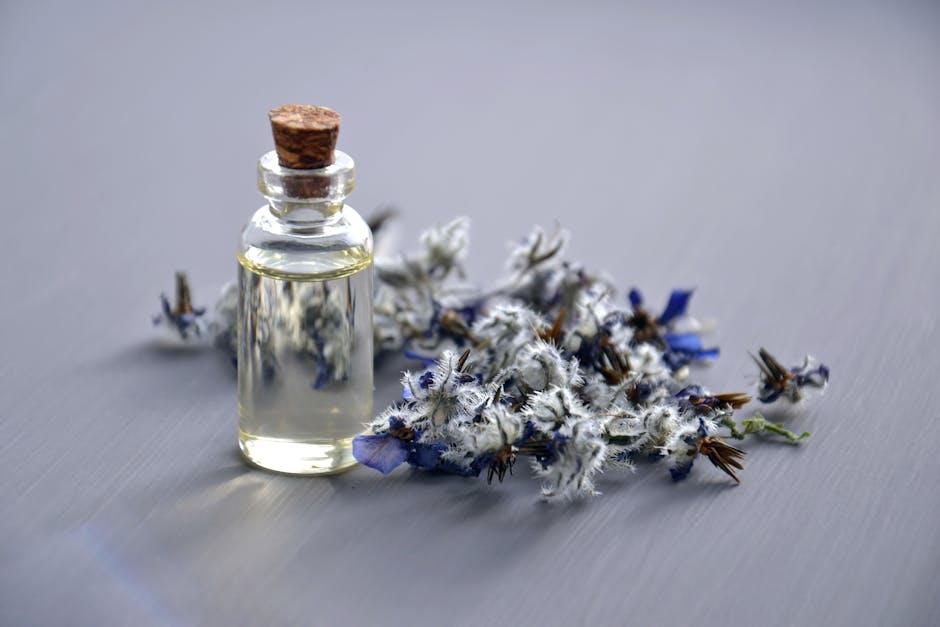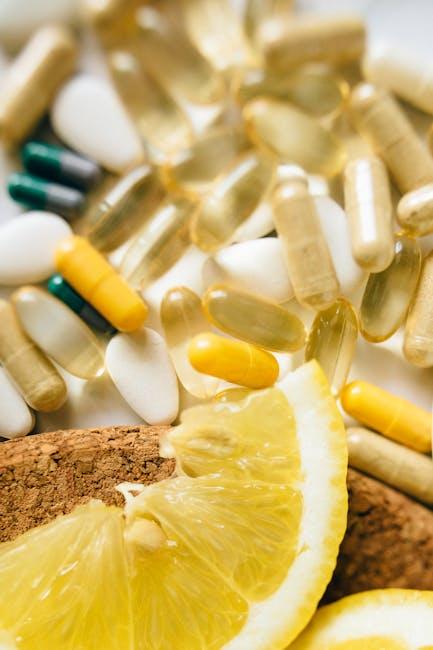In a world increasingly attuned to teh potential benefits of natural remedies, herbal supplements have surged in popularity, promising everything from enhanced vitality to improved mental clarity. Though, with the plethora of options available on the market, discerning quality from mere marketing can feel like navigating a dense forest without a map.As we delve into the intricate realms of purity, potency, and certifications, this article serves as your compass, guiding you through the essential factors to consider when selecting herbal supplements. By understanding what to look for and what questions to ask, you can embark on a journey towards informed choices that align with your wellness goals, ensuring that the herbal remedies you choose promote health without compromise.Join us as we uncover the key elements that define quality in the world of herbal supplements, empowering you to make decisions rooted in knowledge and confidence.
Understanding Herbal Supplement Purity: Key Factors to Consider
Herbal supplements are becoming increasingly popular, but ensuring their purity is crucial for your health and wellness. When selecting a product, consider the following key factors that contribute to its overall quality:
- Sourcing of Ingredients: Check where the herbs are sourced from; regions known for their quality frequently enough yield better products.
- Third-Party Testing: Reputable brands invest in autonomous laboratory testing to verify purity and potency.
- Contaminant Screening: Ensure that the supplement has been screened for heavy metals, pesticides, and other harmful substances.
- Openness: Look for brands that openly share their ingredient sourcing and testing practices.
Additionally, certifications also play a vital role in assessing purity. Various certifications can highlight a product’s adherence to strict quality standards:
| Certification | What It Means |
|---|---|
| USDA Organic | Ensures the herbs are grown without synthetic fertilizers or pesticides. |
| Non-GMO Project Verified | Confirms that the product is free from genetically modified organisms. |
| Good Manufacturing Practices (GMP) | Indicates that the product is made in a facility that follows industry regulations for safety. |

Assessing Potency: Finding the Right Strength for Your Needs
Determining the right strength of herbal supplements is crucial for harnessing their potential benefits. Strength is often measured in grams or milligrams,but it can also depend on factors such as specific plant properties,user tolerance,and the intended effect. To get the most out of your herbal supplements, consider the following:
- Consult with a professional: A healthcare provider or a qualified herbalist can offer personalized advice based on your health history and goals.
- Start low and go slow: Begin with a lower potency and gradually increase as needed while monitoring your body’s response.
- Research dosages: Familiarize yourself with the recommended dosages for specific supplements to avoid common pitfalls.
Another critical aspect to assess potency is understanding the extraction method used, as this can substantially affect the concentration of active compounds in the supplement.Here’s a brief overview of common extraction methods:
| Extraction Method | Potency Characteristics |
|---|---|
| Water Extraction | Good for water-soluble compounds, less concentrated. |
| Ethanol Extraction | Effective for capturing a wide range of active constituents, generally higher potency. |
| CO2 Extraction | Resulting in highly concentrated products with preserved properties, often regarded as the gold standard. |

Navigating Certifications: Decoding Labels and Ensuring Quality
When it comes to choosing herbal supplements, understanding the various certifications and labels can be quite daunting. Many products boast an array of claims about purity and potency, but not all labels are created equal. Seeking out certifications from reputable organizations is essential in ensuring that you choose supplements that truly meet high-quality standards. Look for seals such as NPA (Natural Products Association), NSF International, and USP (United states Pharmacopeia), which are recognized for their rigorous testing and quality assurance processes. These certifications often indicate that the product has been tested for contaminants, properly labeled, and verified to contain the ingredients it claims.
Moreover, it’s not just about having a certification—understanding what each label signifies is crucial for making informed decisions. For instance, products labeled as GMP (Good Manufacturing practices) ensure that they are produced in a facility that meets specific safety and quality regulations. To help clarify this further, here’s a simple comparison of some key certifications and what they entail:
| Certification | Description |
|---|---|
| NPA | Natural Products Association certification for quality and safety. |
| NSF international | Tests for ingredient quality and contamination levels. |
| USP | Standardizes purity and potency of products and ingredients. |
| GMP | Ensures methods,equipment,and practices follow industry regulations. |
By closely examining the labels and certifications, you can separate the wheat from the chaff and confidently select herbal supplements that align with your health goals and standards. Rather than taking claims at face value, delve deeper into the meaning behind each certification to secure the utmost purity and potency in your herbal choices.

Maximizing Benefits: Tips for Choosing the Right Herbal Supplement for You
When it comes to selecting the right herbal supplement, understanding the key factors can significantly enhance your experience and results. Start by evaluating the purity of the supplement; look for products that are free from fillers, additives, and contaminants. Scan through the label for third-party testing certifications, which assure you that the supplement has been independently verified for its ingredients and safety. Additionally,prioritize brands that provide transparent information about their sourcing practices,ensuring that the herbs are harvested sustainably and ethically.
Potency is another critical aspect to consider. It’s essential to know the standardization of active compounds within the supplement. Products that specify a particular percentage of active ingredients can definately help you gauge their effectiveness better. Moreover, consider your own health goals; different formulations can cater to various needs—from boosting immunity to enhancing mental clarity. Keep an eye out for certifications such as GMP (Good Manufacturing Practices) and organic designations, as these are indicators of a product’s overall quality and reliability.
Final Thoughts
In the journey toward holistic health, the choices you make regarding herbal supplements can significantly impact your path. As we navigate the intricate landscape of natural remedies, understanding the principles of purity, potency, and certification is not just beneficial; it is indeed essential. By arming yourself with knowledge and a discerning eye, you can confidently select supplements that align with your health goals and values.As you venture into the world of herbal wellness, remember that quality is not merely a buzzword—it is indeed the foundation of effective supplementation. Pay attention to sourcing, scrutinize labels, and embrace transparency from manufacturers. Your health is a precious treasure; safeguarding it means making informed decisions about what you consume.
By prioritizing quality, you are investing in more than just herbal products; you are embracing a lifestyle of wellness, awareness, and empowered health choices. As you take each step, may your journey be filled with vitality, grounded in knowledge, and guided by the potent promise of nature’s bounty. Here’s to a healthier tomorrow, one thoughtful choice at a time.




